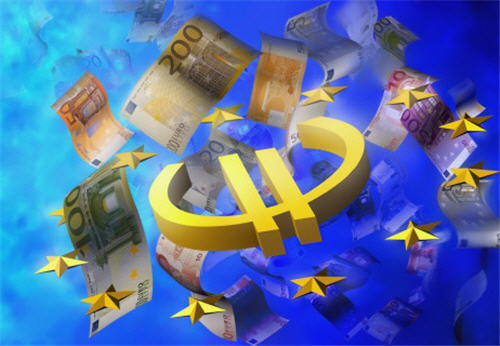
The Euro crisis is far from over despite – or perhaps because of – the decision by the ECB to set-up a 750 billion euro emergency fund to protect the euro-zone countries from going bankrupt. The economic outlook is grim, which is likely to have some profound political consequences, not least on EU’s enlargement policy.
The Balkan counties, desperately trying to get into the EU as full members, and Europe’s eastern neighbors should take note. German voters are no longer feeling generous, and the public debate in Germany is turning increasingly nationalistic and anti-EU. Chancellor Merkel was already punished for standing up for Europe in the regional election two Sundays ago, where her party lost to opposition in one of Germany’s key states. And the developments in Germany are not an isolated case on the European political scene.
How much can the Balkan countries expect from Europe, in terms of money and political support is a question that no longer has a clear answer. European solidarity is under attack, while the politics of nationalism, racism and xenophobia are on the rise across Europe.
Anti-enlargement political rhetoric is nothing new in Brussels either. Enlargement has been a divisive issue in Brussels ever since the first enlargement to the east, and the debate has grown sour ever since Bulgaria and Romania joined the EU. As the EU quickly expanded east to capitalize on the fall of the Iron Curtain, many experts warned against going too big too quickly. Today, as Greece struggles to keep its finances above water, and the line of troubled economies grows longer, the enlargement skeptics may feel slightly vindicated.
However, enlargement remains a key strategic policy designed to strengthen Europe by stabilizing and reuniting the continent, and it is imperative to prevent enlargement skeptics from using the current financial crisis to permanently shelve this policy. Ending European enlargement now would bring about new instability in the Balkans, and would probably bring the process of political and economic transformation in EU’s eastern neighborhood to a halt.
The Balkans is better off today than in the ‘90s on all counts. The economy is better, social cohesion is better, and political leaders are committed to bringing about positive change through reforms rather than fighting. However, to assume that the Balkans is beyond conflict is naïve. Ethnic tensions in Kosovo, Bosnia and Macedonia remain high. The numerous attempts made in Kosovo to integrate the Kosovo Serbs have failed. Republika Srbska in Bosnia looks increasingly out of step with international efforts to replace the Dayton Constitution with a modern document that will simplify decision-making and make the country a more integrated unit. The peace along Macedonia’s ethnic lines is uncertain, especially as the dispute with Greece over its name has no real prospects of getting resolved, which means Macedonia’s perspective for advancing towards EU and NATO remain bleak.
The region is also suffering economically. As the credits are drying up across Europe, less and less money is making it to the Balkans in terms of direct bank loans and private investments. Unemployment is rising, social benefits are being cut, and governments are struggling to meet their debt obligations. If the perspective for a European future becomes unrealistic, Balkan politics can quickly revert to nationalism and radicalism to take the minds of the voters off of the economic wows facing the region. Not all border matters have been settled in the region, and partition is still hotly debated in fringe political circles in Serbia, Bosnia, Kosovo, Macedonia and Albania. Why should Balkan leaders choose to pay the political price associated with difficult economic reforms when their counterparts in the EU are wrapping themselves with national flags and abandoning pan-European solutions?
Since a reversal from progressive to destructive politics in the Balkans is possible, Brussels should resist any attempt from capitals to use the current financial crisis as a reason to derail enlargement. Furthermore, the Balkan political elites need to understand that their future in Europe hangs by a thread, which means commitment to reforms, and tangible progress on reforms needs to be an absolute priority. There is no room for error and stalling. This is the region’s last chance to get its act together and speed up its EU membership process. There are not many Balkan fans left in Brussels and in the EU capitals, and even fewer political leaders are still willing to stick their necks out for the region.
In the end, the strategic, economic and security implications of ending the policy of enlargement will be devastating for Europe, the Balkans, and Europe’s eastern neighbors. Enlargement wasn’t cooked up to give free hand outs to the less developed parts of Europe. Enlargement has always been a policy designed to strengthen Europe economically, politically and strategically, and make Europe more competitive in global affairs. The current financial crisis does not change any of these fundamentals on which the policy of enlargement rests.
Borut Grgic, a nonresident senior fellow at the Atlantic Council, is the founder and chairman of the Institute for Strategic Studies in Brussels, a nongovernmental institution focused on the EU’s foreign policy, and a Senior Advisor for the transCaspian project at the European Policy Center in Brussels.
Image: europe-money.jpg
